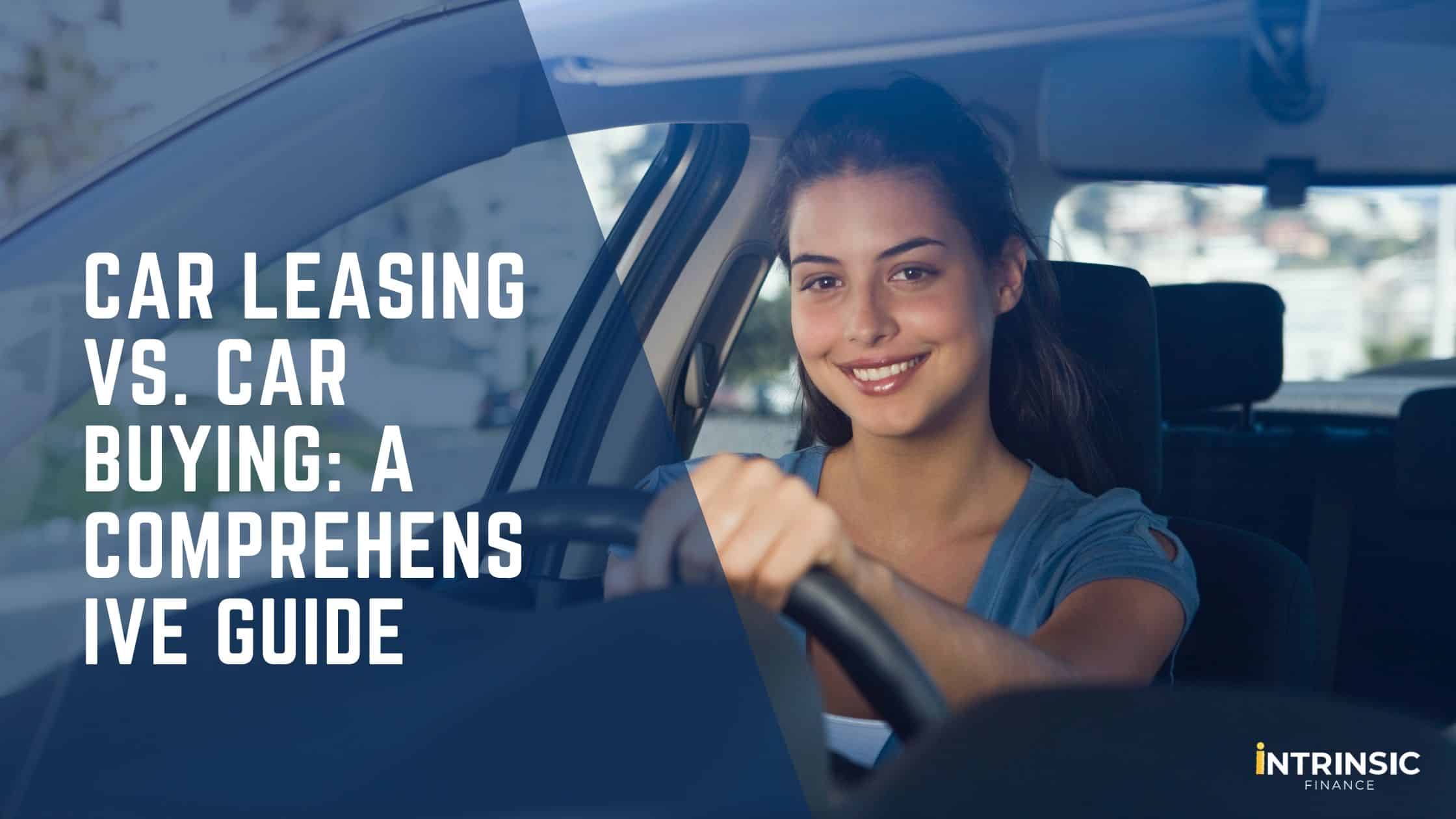Whether you’re looking to upgrade your ride or purchase your first car, the decision between leasing and buying is a significant one. Understanding the key differences between these two options can help you make an informed choice that aligns with your lifestyle and financial goals. For instance, if you prefer a newer car every few years or don’t want to worry about long-term maintenance, leasing might be a suitable option. However, if you’re looking to build equity and own the car outright, car financing is a more traditional path.
Leasing
Leasing is a contractual arrangement where you agree to pay a monthly fee to drive a vehicle for a specific period, typically 2-4 years. At the end of the lease term, you return the vehicle to the dealership.
Pros of Leasing
- Lower Monthly Payments: Leasing often offers lower monthly payments compared to buying, making it more affordable for those with a tight budget.
- Drive a Newer Vehicle: Leasing allows you to drive a newer model vehicle every few years, keeping you up-to-date with the latest features and technology.
- Limited Maintenance Costs: Many leases include basic maintenance coverage, reducing your out-of-pocket expenses for repairs and maintenance.
Cons of Leasing
- No Ownership Rights: When you lease a vehicle, you don’t own it. You’re essentially renting it.
- Mileage Restrictions: Most leases have strict mileage limits. Exceeding these limits can result in additional fees at the end of the lease term.
- End-of-Lease Fees: If you return the vehicle with excessive wear and tear or mileage, you may be subject to additional fees.
Understanding the Leasing Process in Australia
Lease Terms and Agreements
When leasing a vehicle in Australia, you’ll enter into a lease agreement that outlines the terms and conditions of the lease. Key elements include:
- Lease Term: The length of the lease, typically 2-4 years.
- Mileage Limit: The maximum number of miles you can drive the vehicle during the lease term.
- Residual Value: The estimated value of the vehicle at the end of the lease.
- Monthly Payment: The fixed amount you’ll pay each month for the right to use the vehicle.
Residual Value
The residual value is a crucial factor in determining your monthly lease payment. It’s the estimated value of the vehicle at the end of the lease term. A higher residual value generally results in lower monthly payments.
Security Deposit
A security deposit is often required when leasing a vehicle. It’s a refundable amount held by the lessor to ensure you meet your obligations under the lease agreement.
Calculating Your Costs
Monthly Payments
Your monthly lease payment is calculated based on the vehicle’s purchase price, residual value, interest rate, and lease term.
Upfront Costs
In addition to monthly payments, you may incur upfront costs such as:
- Security Deposit: A refundable amount held by the lessor.
- First Month’s Payment: The initial payment is due at the start of the lease.
- Acquisition Fee: A fee charged by the lessor to process the lease agreement.
End-of-Lease Fees
If you return the vehicle with excessive wear and tear or mileage, you may be subject to additional fees.
Buying
Buying a vehicle involves purchasing it outright or financing it through a loan. You become the owner of the vehicle, and you can drive it for as long as you want.
Pros of Buying
- Ownership: Buying a vehicle gives you full ownership rights, allowing you to modify, sell, or trade it in as you see fit.
- No Mileage Restrictions: You can drive your purchased vehicle as much as you want without worrying about mileage penalties.
- Long-Term Cost Savings: Over time, buying a vehicle can be more cost-effective than leasing, especially if you plan to keep it for several years.
Cons of Buying
- Higher Monthly Payments: Buying a vehicle typically involves higher monthly payments, especially if you finance it over a longer period.
- Depreciation: Vehicles depreciate over time. If you sell or trade-in your car, you may not recoup your full investment.
- Maintenance Costs: As the owner, you’re responsible for all maintenance and repair costs.
Reselling Your Vehicle
If you own a vehicle, you have the option to resell it when you’re ready to upgrade.
Resale Value Factors
Several factors can influence the resale value of a vehicle, including:
- Mileage: Lower mileage generally results in higher resale value.
- Condition: A well-maintained vehicle with minimal damage will command a higher price.
- Year and Model: Newer models and popular brands tend to have higher resale values.
Preparing Your Vehicle for Sale
To maximize your resale value, consider the following:
- Clean and Detail: A clean and well-detailed vehicle looks more appealing to potential buyers.
- Address Issues: Repair any mechanical or cosmetic problems before selling.
- Gather Documentation: Have necessary paperwork, such as service records and titles, ready.
Negotiating a Price
Research market prices for similar vehicles to set a realistic asking price. Be prepared to negotiate with potential buyers.
Environmental Considerations
Both leasing and buying have environmental implications.
Leasing and Emissions
Leasing can contribute to shorter vehicle lifespans, leading to increased production and emissions. However, leasing can also encourage the adoption of more fuel-efficient or electric vehicles.
Buying and Emissions
Buying a vehicle allows you to choose a model with lower emissions. However, keeping a vehicle for a longer period can also contribute to emissions.
Factors to Consider When Choosing Between Leasing and Buying
Your Budget
- Monthly Payments: Consider your monthly income and expenses. Leasing often offers lower monthly payments, while buying may require a larger upfront investment.
- Down Payment: If you’re buying, you’ll likely need a down payment to reduce your monthly loan payments.
- Hidden Costs: Be aware of potential hidden costs associated with both leasing and buying, such as end-of-lease fees, maintenance costs, and insurance premiums.
Your Driving Habits
- Mileage: If you drive a lot, leasing may have strict mileage limits that could lead to additional fees.
- Maintenance: Consider your driving style and how often you need maintenance. Buying may involve more maintenance costs, but you have more control over when and where to get repairs.
Your Lifestyle
- Mobility: If you frequently move or travel, leasing can offer more flexibility as you can easily return the vehicle at the end of the lease term.
- Ownership: If you enjoy the feeling of owning a vehicle and customizing it, buying may be a better choice.
Your Long-Term Goals
- Vehicle Ownership: If you plan to keep the vehicle for many years, buying may be more cost-effective in the long run.
- Upgrading: If you prefer to drive a newer vehicle every few years, leasing can be a good option.
Additional Considerations for Australian Drivers
- Road Conditions: Australia’s diverse road conditions can impact vehicle wear and tear. Factor this into your decision when considering leasing or buying.
- Government Incentives: Be aware of any government incentives or rebates available for leasing or buying vehicles in Australia.
- Fuel Efficiency: Australia’s focus on fuel efficiency can influence your choice of vehicle and associated costs.
By carefully evaluating these factors and considering the pros and cons of each option, you can make an informed decision that best suits your needs and preferences as an Australian driver.
FAQs About Leasing vs. Buying in Australia
General Questions
-
What is the difference between leasing and buying a car?
- Leasing is a contractual arrangement where you pay a monthly fee to drive a vehicle for a specific period. Buying involves purchasing the vehicle outright or financing it through a loan.
-
Which option is better for me, leasing or buying?
- The best option for you depends on your individual needs, financial situation, and driving habits. Consider factors such as your budget, mileage requirements, and long-term goals.
-
How long is a typical lease term in Australia?
- Lease terms in Australia typically range from 2 to 4 years.
Leasing Questions
-
Can I modify a leased vehicle?
- While some modifications may be allowed, it’s important to check your lease agreement for any restrictions.
-
What happens if I go over the mileage limit on my lease?
- Exceeding the mileage limit can result in additional fees at the end of the lease term.
-
Can I buy out my lease?
- In some cases, you may have the option to purchase the vehicle at the end of the lease. However, the buyout price may be higher than the vehicle’s market value.
Buying Questions
-
How much of a down payment do I need to buy a car in Australia?
- The required down payment can vary depending on the lender and your creditworthiness. However, a larger down payment can help you secure a lower interest rate and reduce your monthly payments.
-
What are the ongoing costs of owning a car?
- In addition to the initial purchase price, owning a car involves ongoing costs such as fuel, insurance, registration, maintenance, and repairs.
-
How long does it typically take to pay off a car loan in Australia?
- Car loan terms in Australia typically range from 1 to 7 years. The length of your loan will affect your monthly payments and the total interest you’ll pay.
Environmental Questions
-
Which option is more environmentally friendly, leasing or buying?
- Both leasing and buying have environmental implications. Leasing can contribute to shorter vehicle lifespans while buying and keeping a vehicle for a longer period can also impact emissions.
-
Are there government incentives for leasing or buying electric vehicles in Australia?
- Yes, there are government incentives available for leasing or buying electric vehicles in Australia. These incentives can help reduce the upfront cost of purchasing an electric vehicle.
By understanding these FAQs, you can make an informed decision about whether leasing or buying is the right choice for you.
Drive Your Dream Today with Intrinsic Finance
Contact us today to learn more and start driving your dream car.

